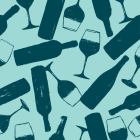Sotheby’s reveals top-selling wine estates of 2020
Sotheby’s has listed its best-selling wine estates of 2020, with Domaine de la Romanee-Conti (DRC) coming in first for the eighth consecutive year.
The auction house’s overall sales saw a drop in 2020, totalling $92 million compared to 2019’s record-breaking $118 million, yet 2020 nonetheless marks the third highest total taken over the past eight years. Like many other auction houses, Sotheby’s has reported strong demand over the past year driven by a transition to online sales.
DRC’s continued success is such that it has its own category in Sotheby’s yearly report. In 2020, its priciest lot was a 12-bottle cache of Romanee-Conti from the renowned 1990 vintage, which fetched $483,413 in Hong Kong.
Meanwhile, the best non-DRC Burgundy lot of the year was a magnum of Henri Jayer Richebourg 1985, which went for $241,706 in Hong Kong.
Overall DRC accounted for 20% of Sotheby’s fine wine and spirits takings ($19.4 million), Petrus accounted for 4% ($4.2 million), followed by Jean-Louis Chave at 3% ($3.1 million), Henri Jayer at 3% ($3 million), Mouton Rothschild and Lafite Rothschild both with 3% ($2.8 million), Domaine Leroy at 2% ($2.1 million) and Haut Brion, also at 2% ($2.1 million).
Ornellaia 2018 released for first time
Ornellaia has released its 2018 vintage, with merchants praising its ‘sensible pricing’ at a time when Italian wines are doing particularly well. The wine is being sold for around £800 per six bottles in bond, compared to £1,800 per 12 bottles in bond for the previous 2017 vintage.
Critics Jane Anson and Aldo Fiordelli have both rated the wine at 96 points, and have complimeted its complexity and ‘thoughtful style’. In his tasting notes, Fiordelli noted that the vintage is a “really great expression of Bolgheri, more focused on elegance than power”.
The 2018 vintage contains 51% of Merlot, the highest proportion of the grape variety in any Ornellaia vintage so far.
Don Melchor launches 100-point 2018 vintage
Critic-pleasing Chilean wine Don Melchor 2018 will launch this month, the product of careful efforts by Chile’s prized Puente Alto vineyard area in the country’s Maipo Andes region.
The wine is one of the few Chilean wines to receive a perfect 100-point score from global wine critic James Suckling, and constitutes a rare release composed of four varieties: Cabernet Sauvignon, Cabernet Franc, Merlot and Petit Verdot.
Don Melchor’s chief winemaker, Enrique Tirado, had previously noted that the 2018 growing season had been “by the book”, resulting in “one of the greatest vintages” he has yet produced.
Harvested by hand between March and May, 2018 Don Melchor has an ageing potential of 35 years. It shows expression and complexity of small red fruits and floral notes, and on the palate the wine is full of flavour and elegance, defined by well-integrated tannins and a long, refined finish.
The wine, which is the flagship Cabernet Sauvignon from Chile’s biggest producer, Concha y Toro, is being launched now with a retail price of US$120 per bottle.
California company claims to have found permanent solution to smoke taint
California-based wine taint removal firm Mavrik North America says it has developed a “quick, complete and permanent solution” to smoke taint.
Unlike existing smoke taint removal techniques, which often remove more of the desirable characteristics of a wine such as fruit flavours, Mavrik’s approach breaks the issue down into three sensory components and tackles them accordingly.
The first two issues – masked fruit, and smoky flavours and aromas – are resolved by passing the wine two to four times through the company’s specialised membranes, which removes traces of the taint. To combat the third issue, harsh mouthfeel, the company employs a novel fining technique using non-traditional fining agents that don’t remove other flavours and aromas within the wine.
According to the company, the result is a “complete and final removal of smoke taint effects, without having to subject the wine to harsh stripping methods”.
Mavrik is currently offering trials on volumes as small as keg to barrel size. Treatment costs vary by lot volume, lot quantity, and the level of smoke taint, although the company says most wines will cost between 40 and 80 cents per gallon to treat, making its solution a potentially feasible option for wineries affected by nearby wildfires.






